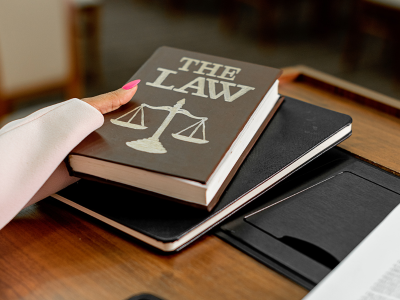Facing criminal charges is a daunting experience that can have significant implications on your life, freedom and future. Understanding your rights and the legal processes involved is crucial for anyone accused of a crime. This blog provides an overview of key aspects of criminal law to help you navigate this challenging time.
The Importance of Legal Representation When accused of a crime, securing competent legal representation is essential. A skilled criminal defense attorney can make a significant difference in the outcome of your case. They will ensure your rights are protected, gather and analyze evidence and develop a strong defense strategy. From negotiating plea deals to representing you in court, an experienced attorney will advocate on your behalf throughout the legal process.
Understanding the Charges Against You It's crucial to fully understand the charges you are facing. Criminal charges can range from misdemeanors to felonies, with varying degrees of severity and penalties. Misdemeanors typically involve less severe crimes and result in lighter sentences, such as fines or short-term imprisonment. Felonies, on the other hand, are more serious offenses that can lead to long-term imprisonment and substantial fines. Your attorney will explain the specific charges and potential penalties, helping you prepare for what lies ahead.
The Arrest and Bail Process After an arrest, the next step is the bail hearing, where the court decides whether you can be released from custody while awaiting trial. Bail is a set amount of money that acts as a guarantee that you will return for your court dates. If granted bail, you may be released from jail, allowing you to continue your daily life while preparing your defense. An attorney can present compelling arguments at your bail hearing, emphasizing factors such as your community ties, employment and lack of flight risk.
Building a Defense Strategy A strong defense strategy is critical in criminal cases. Your attorney will review all evidence, interview witnesses and may consult with experts to build a solid defense. Common defense strategies include proving innocence, demonstrating that your rights were violated during the arrest or investigation and showing that the prosecution lacks sufficient evidence. Your attorney will tailor the defense to the specifics of your case, aiming to achieve the best possible outcome.
Trial and Sentencing If your case goes to trial, it will involve presenting evidence and arguments to a judge or jury. The prosecution must prove your guilt beyond a reasonable doubt. Your defense attorney will cross-examine witnesses, challenge the prosecution's evidence and present your side of the story. If convicted, the sentencing phase will determine your punishment. Your attorney will advocate for a fair and reasonable sentence, considering factors such as your background and the circumstances of the crime.
Appeals and Post-Conviction Relief If you are convicted, you have the right to appeal the decision. An appeal is a request to a higher court to review and possibly overturn the conviction or sentence. Grounds for appeal can include legal errors made during the trial, insufficient evidence or new evidence that could exonerate you. Post-conviction relief can also involve seeking expungement, which removes the conviction from your record, allowing you to move forward with your life.
Conclusion Navigating the criminal justice system can be overwhelming, but understanding your rights and the legal processes involved can help you make informed decisions. If you are facing criminal charges, securing experienced legal representation is crucial to protecting your rights and achieving the best possible outcome. At Advocate Anurag Bhati, we are dedicated to providing expert legal defense, guiding you through every step of the process with professionalism and compassion.

